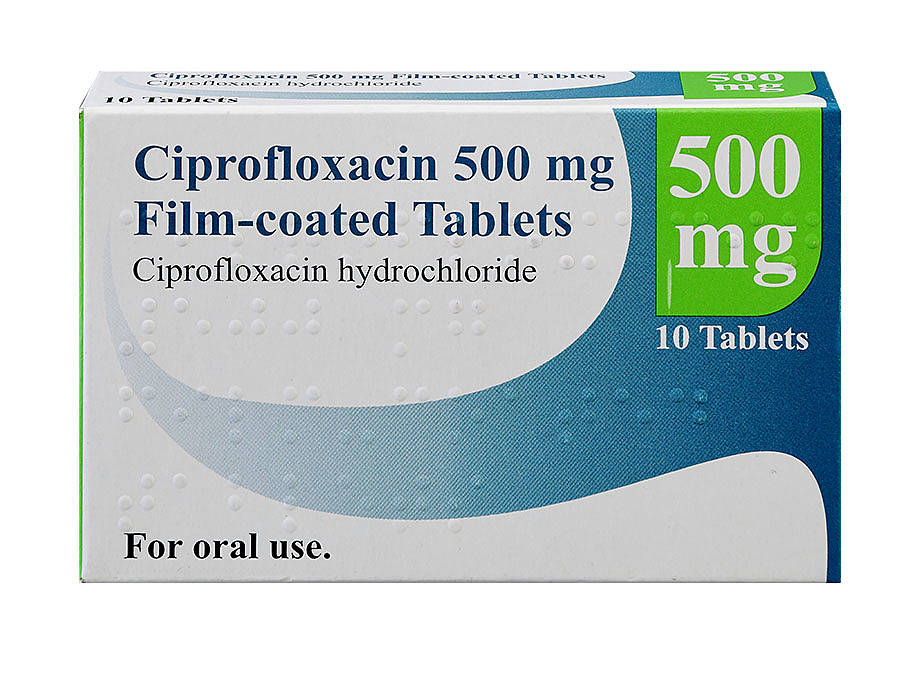Ciprofloxacin (no longer available)
We no longer offer ciprofloxacin to treat travellers' diarrhoea. Continue reading to learn about treatment.




Prices from £15.00
Out of stock. Simply fill in a brief consultation questionnaire and one of our doctors will review your request today.
-
Ciprofloxacin is an antibiotic previously used to treat travellers’ diarrhoea. It is no longer recommended because of high rates of resistance to treatment.
Azithromycin is now the recommended antibiotic for travellers’ diarrhoea, regardless of where you’re travelling to. You can request azithromycin online through us.
Prices
6 tablet(s) - £15.00



About Ciprofloxacin
-
-
Ciprofloxacin is a broad spectrum antibiotic, which means it’s effective against various types of bacteria. It is no longer recommended to treat travellers’ diarrhoea due to high antibiotic resistance rates.
Azithromycin is now the recommended antibiotic for travellers’ diarrhoea. You can request azithromycin online through us to treat travellers' diarrhoea.
-
-
Treatment with ciprofloxacin usually consists of two 500mg tablets a day, depending on what it’s being used for. Usually you take one in the morning and one in the evening.
The tablets can be taken with or without food but you need to avoid taking them with dairy products or calcium supplements (including fortified juices or cereals).
Calcium can reduce the effectiveness of Ciprofloxacin, so you should take the tablets either 1 to 2 hours before eating dairy or at least four hours after your last meal containing dairy of added calcium.
-
-
If you’ve been prescribed Ciprofloxacin by a doctor, you should take it as advised for the duration of the course. If you’re not able to complete the course, or have side effects, you should speak to your doctor.
-
-
- allergic to any of the ingredients
- allergic to any other quinolone drugs
- taking tizanidine
-
-
- suffer from kidney problems
- suffer from a neurological condition such as epilepsy
- are taking any other medication
- have ever developed problems with your tendons due to an antibiotic treatment
- suffer from diabetes
- suffer from muscle weakness
- have a deficiency in glucose-6-phosphate dehydrogenase (G6PD) or a family history of this condition
- have a salt imbalance in your blood
- suffer from a heart problem (including heart failure or heart attack)
- suffer from arrhythmia or have a slow heart rhythm
-
-
Ciprofloxacin causes side effects in some patients.
Common ciprofloxacin side effects
- Nausea or diarrhoea
- Joint pains (in children)
Uncommon side effects
- Decrease in appetite
- Taste disorders
- Pain in your muscles and bones
- Fever and feeling unwell
- Poor kidney function
- Joint pain
- Fungal infections
- Sleeping problems
- Headaches and dizziness
- Digestive problems (such as an upset stomach, vomiting or indigestion)
- Abdominal pain and flatulence
- Skin problems such as itching and rash
- Feeling agitated or hyperactive
- Changes affecting your blood levels of certain substances (this will affect your blood test results such as liver function tests and full blood count)
For a full list of all side effects associated with Ciprofloxacin read the patient leaflet supplied with your medication.
-
-
Like other antibiotics, Ciprofloxacin can interact with certain kinds of medication, including:
- warfarin and other Vitamin K antagonists (such as acenocoumarol, phenprocoumon or fluindione)
- certain blood-thinning medications
- certain medications used to treat epilepsy or Parkinson’s Disease
- some medications used to treat gout (such as probenecid)
- cyclosporin
- medicines which alter your heart rhythm
- mineral supplements or medicines containing calcium, magnesium, aluminium or iron
- sildenafil (used to treat erectile dysfunction)
- caffeine duloxetine
- clozapine (an antipsychotic medication)
- olanzapine (an antipsychotic)
- the multiple sclerosis medication tizanidine
- licodeine
- antacids
- omeprazole
- pentoxifylline (for circulatory disorders)
- metoclopramide (used to treat nausea and vomiting as well as migraine)
- methotrexate (for the treatment of cancer, psoriasis and rheumatoid arthritis)
- medicines that belong to the group of anti-arrhythmics (for example quinidine, hydroquinidine, disopyramide, amiodarone and sotalol)
- tricyclic antidepressants,
- some antimicrobials (that belong to the group of macrolides)
- sucralfate
- polymeric phosphate binder (e.g. sevelamer or lanthanum carbonate)
Ciprofloxacin does not interact with alcohol. Tell your doctor about any medications you're currently taking before you take Ciprofloxacin.

Dr Kathryn Basford is a qualified GP who works as a GP in London, as well as with ZAVA. She graduated from the University of Manchester and completed her GP training through Whipps Cross Hospital in London.
Meet our doctorsLast reviewed: 11 Jun 2019
-
Management of travellers’ diarrhoea, BMJ [accessed February 2023]
-
Travellers' Diarrhoea, fitfortravel [accessed February 2023]
-
How and when to take or use ciprofloxacin, National Health Service [accessed February 2023]
-
Ciprofloxacin, NICE/British National Formulary [accessed February 2023]
-
Ciprofloxacin 500mg film-coated tablets, Patient Information Leaflet, EMC [accessed February 2023]
When travelling to other countries, it’s possible that you will come into contact with bacteria that cause stomach infections. In order to treat common symptoms of this, including diarrhoea, ZAVA offers antibiotic tablets.








